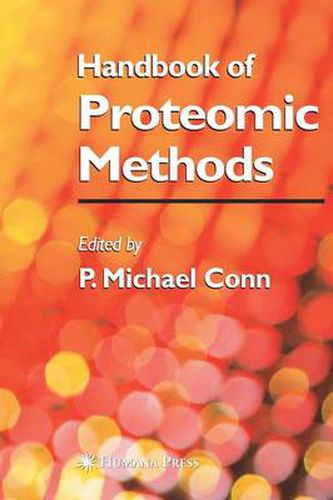Readings Newsletter
Become a Readings Member to make your shopping experience even easier.
Sign in or sign up for free!
You’re not far away from qualifying for FREE standard shipping within Australia
You’ve qualified for FREE standard shipping within Australia
The cart is loading…






This title is printed to order. This book may have been self-published. If so, we cannot guarantee the quality of the content. In the main most books will have gone through the editing process however some may not. We therefore suggest that you be aware of this before ordering this book. If in doubt check either the author or publisher’s details as we are unable to accept any returns unless they are faulty. Please contact us if you have any questions.
A compendium of thirty-four powerful techniques for identifying and analyzing the diversity of proteins expressed in cells. Thee readily reproducible proteomic methods range from general to specific techniques, and include methods for data analysis, posttranslational modification, and its variants and isoforms. Additional methods demonstrate the application of proteomics to the discovery of serological tumor markers, to identifying the determinants of sensitivity to antitumor drugs, and to specialized fields, such as endocrinology, plant biology, nephrology, and urology.
$9.00 standard shipping within Australia
FREE standard shipping within Australia for orders over $100.00
Express & International shipping calculated at checkout
This title is printed to order. This book may have been self-published. If so, we cannot guarantee the quality of the content. In the main most books will have gone through the editing process however some may not. We therefore suggest that you be aware of this before ordering this book. If in doubt check either the author or publisher’s details as we are unable to accept any returns unless they are faulty. Please contact us if you have any questions.
A compendium of thirty-four powerful techniques for identifying and analyzing the diversity of proteins expressed in cells. Thee readily reproducible proteomic methods range from general to specific techniques, and include methods for data analysis, posttranslational modification, and its variants and isoforms. Additional methods demonstrate the application of proteomics to the discovery of serological tumor markers, to identifying the determinants of sensitivity to antitumor drugs, and to specialized fields, such as endocrinology, plant biology, nephrology, and urology.